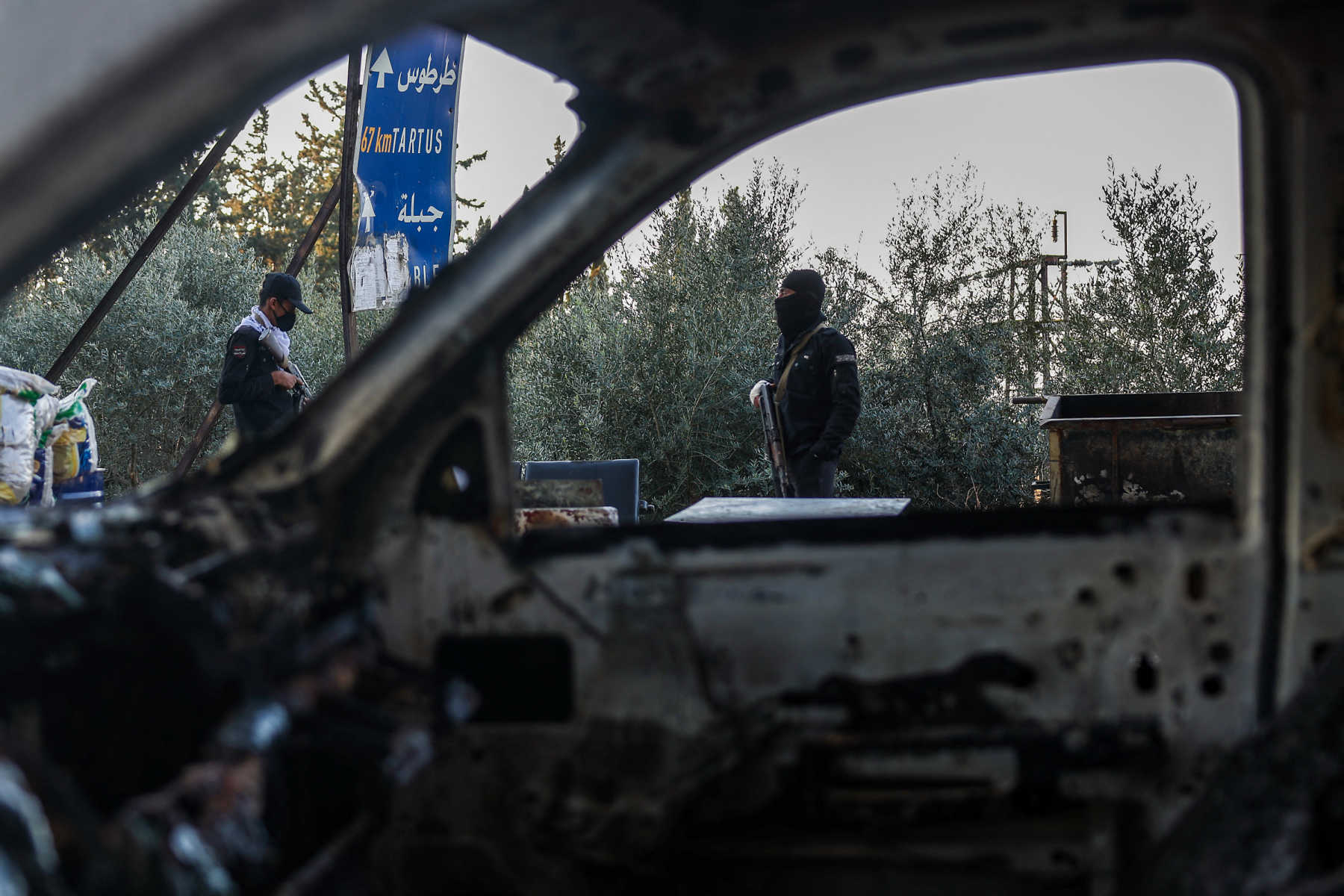Michael Omer-Man is the Director of Research for Israel-Palestine at DAWN.
The gunshots seemingly came out of nowhere, killing an unarmed Palestinian. At first, Israeli military officials speculated they were killed by stray gunfire from nearby Palestinian militants. A spokesperson then suggested the shooting was justified. Later, more Israeli army officials, friendly journalists and senior politicians piled on, calling the video of the shooting doctored, even suggesting that the death itself had been staged. Once the initial attention began to fade, a CNN article and new video footage would show that the deadly bullets had almost certainly been fired by an Israeli soldier—deliberately.
This script will sound eerily familiar to those following the recent killing of journalist Shireen Abu Akleh. These events, however, transpired in 2014 after an Israeli soldier killed two unarmed Palestinian teenagers in the West Bank, shooting at them from a perch a few hundred feet away.
The Israeli responses to Abu Akleh's killing were nearly identical, from the army spokesperson saying that she was "armed" with a camera and suggesting she was killed by stray Palestinian fire, to the Israeli president calling video footage and a CNN investigation "fake facts."
Juxtaposing the two cases is useful, as they show how the Israeli hasbara machine reacts when Israeli forces kill Palestinian civilians and it garners international attention and outrage. But even more important is what these two cases can tell us about why Palestinians do not—and cannot—have faith or trust in Israel to investigate itself and deliver justice or accountability.
The lack of trust and faith is justified. The Israeli military has a horrible record of investigating its own soldiers. Data from Israeli human rights group Yesh Din shows that in recent years, the Israeli army filed indictments in only 2 percent of complaints of soldiers harming Palestinians. In the rare cases when Israeli forces are prosecuted and convicted, they are usually given plea deals that reduce charges of murder to lesser charges of negligent manslaughter and even negligent use of a weapon.
Palestinians do not—and cannot—have faith or trust in Israel to investigate itself and deliver justice or accountability.
- Michael Omer-Man
Such was the case of Ben Deri, the Israeli border policeman who killed 17-year-old Nadeem Nawara in the aforementioned 2014 case. Deri was initially arrested on suspicion of murder, charged with manslaughter and pled guilty to negligent manslaughter, despite a multitude of evidence that he knew exactly what he was doing and shot several other Palestinian demonstrators that day. He was sentenced to a year and half in prison but was ultimately released having served less than a year.
The cases of Shireen Abu Akleh and Nadeem Nawara, however, are outliers in every possible way. According to data from the United Nations Office for the Coordination of Humanitarian Affairs, Israeli security forces have killed 43 Palestinian civilians in the West Bank thus far in 2022 alone. Only the killing of Abu Akleh made international headlines and generated pressure on Israel to launch an investigation.
Yet even in Abu Akleh's case—despite being an American citizen, and the fact that the Israeli army claims it has identified the soldier who "might" have killed her—Israeli military police have already indicated they will not even conduct a criminal investigation. Instead, the army will rely on an operational inquiry conducted by the unit's commander, who, as Israeli journalist Haggai Matar noted, "has a clear personal interest in defending himself and his men." (Not that said commander actually has anything to worry about, because there is no concept of command responsibility in Israeli law.)
This, of course, is the norm in Israel. Although, on paper, Israeli military police have a policy of immediately and automatically opening an investigation any time IDF soldiers kill a civilian in the occupied West Bank—except when they are killed in a situations that are of "a real combat nature"—this is a far cry from what actually happens in practice.
"The ambiguity of this term, 'a real combat nature,' contributes to the legitimization of the killing of Palestinians by Israeli soldiers and is used in many cases by the military police to avoid opening criminal investigations against soldiers, even in cases of fatal shootings," Ziv Stahl, executive director of Yesh Din, told DAWN.
Israel's entire political, legal and military system toward Palestinians is so unjust at its core that creating any credible circuitry of justice or accountability, even on an individual level, would risk undermining the entire regime.
- Michael Omer-Man
That Shireen Abu Akleh was a journalist is also little consequence when it comes to the near-guaranteed impunity enjoyed by Israeli soldiers, who have killed at least 30 journalists in the West Bank and Gaza since 2000, according to Reporters Without Borders. Dozens more have been wounded by live fire.
Agence France-Presse recently asked the Israeli military how many soldiers have been prosecuted for killing a journalist in that time period. The military spokesperson could or would not produce a single case where charges had been filed.
This includes the killing of Gaza-based journalist Yasser Murtaja, who, in circumstances dishearteningly reminiscent of Shireen Abu Akleh's, was killed by an Israeli sniper while wearing a clearly visible "PRESS" vest. He was one of at least five Palestinian journalists shot by Israeli snipers in one day of protests along the Gaza border in 2018. No Israeli soldier has been charged in Murtaja's death or the shooting of the other journalists covering those demonstrations.
Following Murtaja's killing and the wounding of dozens of other journalists in 2018, I asked the Israeli military on five different occasions what changes the army would make to protect the lives of journalists or hold accountable those harming them. Although the IDF Spokesperson's office acknowledged receiving my questions (I was working as an accredited journalist in Israel at the time), it declined to provide a response.
To say that Palestinians have no reason to trust the Israeli legal system providing them justice is not only an understatement; it is a deflection. Israel's entire political, legal and military system toward Palestinians is so unjust at its core that creating any credible circuitry of justice or accountability for Palestinians, even on an individual level, would risk undermining the entire regime. Or, as the former president of Israel's Supreme Court, Asher Grunis, put it in upholding Israel's discriminatory Citizenship Law, "Human rights are not a prescription for national suicide."
If there is to be justice or accountability for the killing of Shireen Abu Akleh, it won't be found in Israel.
















![Security forces loyal to the interim Syrian government stand guard at a checkpoint previously held by supporters of deposed president Bashar al-Assad, in the town of Hmeimim, in the coastal province of Latakia, on March 11, 2025. Syria's new authorities announced on March 10, the end of an operation against loyalists of deposed president Bashar al-Assad, after a war monitor reported more than 1,000 civilians killed in the worst violence since his overthrow. The Syrian Observatory for Human Rights said the overwhelming majority of the 1,068 civilians killed since March 6, were members of the Alawite minority who were executed by the security forces or allied groups. (Photo by OMAR HAJ KADOUR / AFP) / “The erroneous mention[s] appearing in the metadata of this photo by OMAR HAJ KADOUR has been modified in AFP systems in the following manner: [Hmeimim] instead of [Ayn Shiqaq]. Please immediately remove the erroneous mention[s] from all your online services and delete it (them) from your servers. If you have been authorized by AFP to distribute it (them) to third parties, please ensure that the same actions are carried out by them. Failure to promptly comply with these instructions will entail liability on your part for any continued or post notification usage. Therefore we thank you very much for all your attention and prompt action. We are sorry for the inconvenience this notification may cause and remain at your disposal for any further information you may require.”](https://dawnmena.org/wp-content/uploads/2025/04/syria-22039885951-350x250.jpg)










![Security forces loyal to the interim Syrian government stand guard at a checkpoint previously held by supporters of deposed president Bashar al-Assad, in the town of Hmeimim, in the coastal province of Latakia, on March 11, 2025. Syria's new authorities announced on March 10, the end of an operation against loyalists of deposed president Bashar al-Assad, after a war monitor reported more than 1,000 civilians killed in the worst violence since his overthrow. The Syrian Observatory for Human Rights said the overwhelming majority of the 1,068 civilians killed since March 6, were members of the Alawite minority who were executed by the security forces or allied groups. (Photo by OMAR HAJ KADOUR / AFP) / “The erroneous mention[s] appearing in the metadata of this photo by OMAR HAJ KADOUR has been modified in AFP systems in the following manner: [Hmeimim] instead of [Ayn Shiqaq]. Please immediately remove the erroneous mention[s] from all your online services and delete it (them) from your servers. If you have been authorized by AFP to distribute it (them) to third parties, please ensure that the same actions are carried out by them. Failure to promptly comply with these instructions will entail liability on your part for any continued or post notification usage. Therefore we thank you very much for all your attention and prompt action. We are sorry for the inconvenience this notification may cause and remain at your disposal for any further information you may require.”](https://dawnmena.org/wp-content/uploads/2025/04/syria-22039885951-360x180.jpg)









